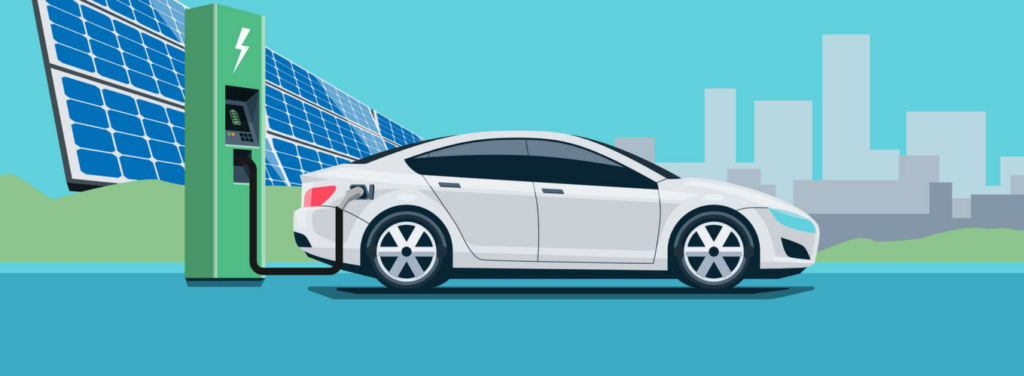India is the fourth largest motorcycle market in the world and its electric vehicle share is rising as well. India has witnessed a rapid increase in the demand for electric 2-wheeler vehicles since late 2014, when it started selling these vehicles to make India an all-electric nation by 2030.
What is an electric vehicle?
Electric vehicles are powered by electricity from batteries or fuel cells. They are a clean and efficient alternative to petrol or diesel-powered vehicles and can help reduce emissions of greenhouse gases and other pollutants.
Electric vehicles have been around for over a century, but their uptake has been limited due to high costs and concerns about range and charging infrastructure. However, advances in technology and falls in the cost of batteries are making electric vehicles more attractive, and countries around the world are beginning to invest in this area.
In India, the government has been working on a National Electric Mobility Mission Plan (NEMMP) 2020 to promote the adoption of electric vehicles. This includes targets for sales of electric vehicles, as well as investment in infrastructure such as charging stations. The NEMMP 2020 is part of India’s commitment to reduce its emissions intensity by 33-35% below 2005 levels by 2030, as part of the global Paris Agreement on climate change.
Also Read: BYD Atto 3 Launch Price 33.99*: Bookings Open
The Indian government has also announced plans to phase out petrol and diesel cars by 2030. This is an ambitious target, but with continued support from the government and private sector, it is achievable. Electric vehicles will play a key role in helping India meet its climate goals, as well as improving air quality and reducing dependence on imported oil.
Why switch to electric vehicles?
Electric vehicles are not only more environmentally-friendly than traditional petrol or diesel cars, but they’re also cheaper to operate and maintain. With the Indian government’s push to promote electric mobility, there has never been a better time to switch to an electric vehicle.
Here are some of the key reasons why you should switch to an electric vehicle:
- Electric vehicles produce zero emissions, which is better for the environment and helps improve air quality.
- Electric vehicles are cheaper to operate than petrol or diesel cars – you’ll save money on fuel costs, as well as maintenance and servicing expenses.
- Electric vehicles have a much longer range than traditional petrol or diesel cars, so you can travel further without needing to refuel.
- Electric vehicles are becoming increasingly popular, so you’ll be ahead of the curve by making the switch now.
- The Indian government is offering significant financial incentives for those who purchase electric vehicles, so it’s a great time to make the switch.
Benefits of Electric Vehicles
Electric vehicles are being promoted as the next big thing in the automotive industry due to the many benefits they offer over traditional gasoline-powered vehicles.
The most obvious benefit of electric vehicles is that they produce zero emissions, which is great for the environment. Electric vehicles also tend to be much more efficient than gas-powered cars, meaning you’ll save money on fuel costs in the long run.
Another big benefit of electric vehicles is that they’re very quiet. This can be a great selling point for city dwellers who are tired of all the noise pollution from cars. Electric vehicles also have instant torque, which means they accelerate faster than gas-powered cars.
Overall, electric vehicles offer a cleaner, cheaper, and quieter driving experience that is sure to appeal to a wide range of consumers.
Disadvantages of Electric Vehicles
1.1. Limited Driving Range
One of the main disadvantages of electric vehicles is their limited driving range. Most electric cars can only travel for a few hundred miles before needing to be recharged, which can take several hours. This makes them unsuitable for long journeys or road trips.
1.2. High Initial Cost
Electric vehicles are often more expensive to buy than traditional petrol or diesel cars. This is because the technology is still relatively new and therefore more expensive to produce. The high initial cost may deter some people from making the switch to electric vehicles.
1.3. Limited Infrastructure
Another disadvantage of electric vehicles is that the infrastructure for charging them is still fairly limited. In most countries, there are only a handful of public charge points, which can make it difficult to find a place to recharge your car if you’re away from home.
1.4 Environmental Concerns
Some people have concerns about the environmental impact of electric vehicles, as they still require electricity to run. The majority of electricity in many countries comes from power plants that burn fossil fuels, such as coal and natural gas. This means that electric cars are not completely emissions-free.
Vehicle Type and Cost
There are many different types of electric vehicles (EVs) available on the market today, ranging from small scooters to large vans and buses. The type of EV you choose will depend on your specific needs and budget.
The cost of EVs also varies depending on the size and range of the vehicle. Smaller EVs like scooters or bicycles may cost as little as Rs 20,000, while larger EVs like cars or buses can cost up to Rs 10 lakh.
Conclusion
With electric 2-wheeler vehicles set to hit the road in India soon, this could be a game-changer for the country’s transportation landscape. Not only will these vehicles be more environmentally-friendly, but they’ll also help reduce traffic congestion and noise pollution. And with India’s growing population, electric 2-wheelers could be an essential part of the country’s future transportation plans. We can’t wait to see how these new vehicles transform India’s roads!

